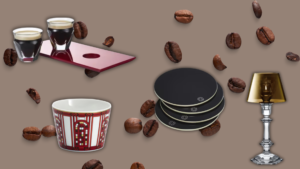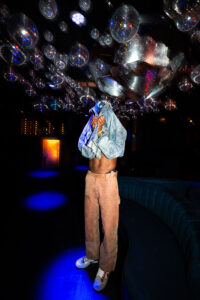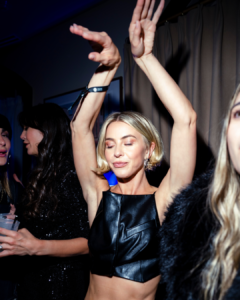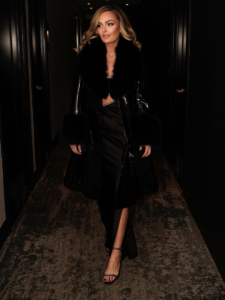Music
Why Ellise Is the Dark Pop Darling We Need Right Now
From her viral hit 911 to a sold-out tour, here’s how the breakout star, Ellise, is shaping pop’s shadowy new era.
- By: Julianne Elise Beffa | Photos By: Ben Allen
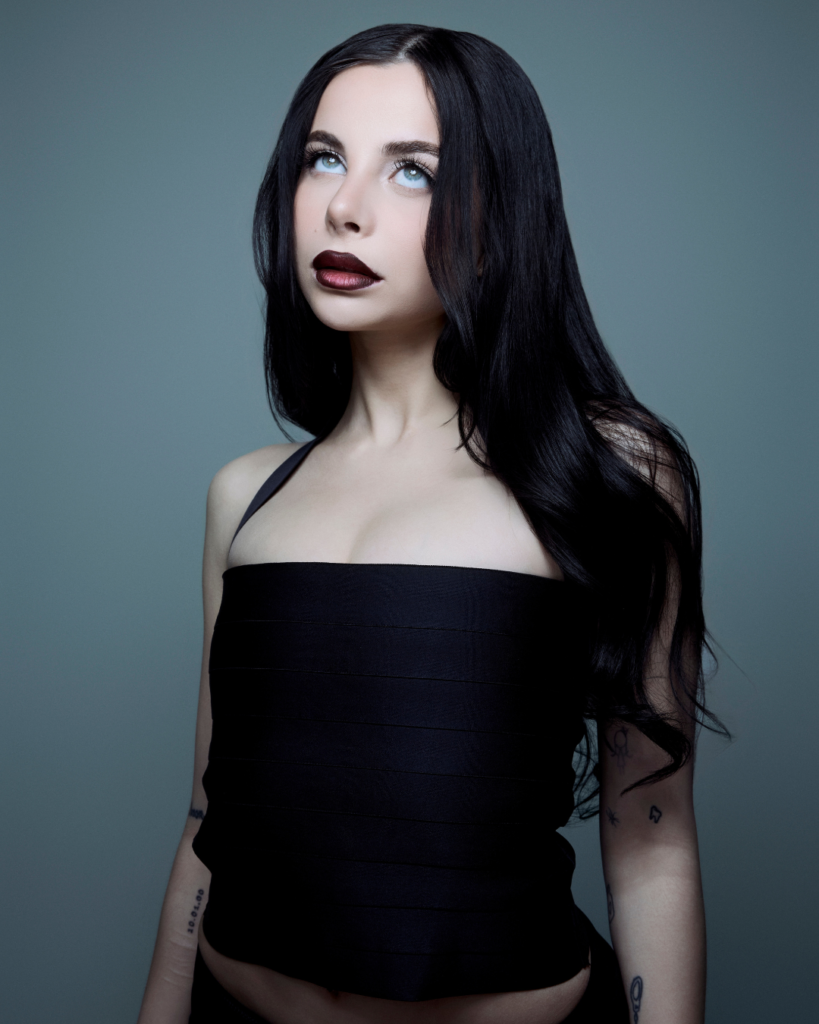
Last week, the internet collectively gasped when Lady Gaga dropped her long-teased music video for The Dead Dance. Directed by Tim Burton, the six-minute fever dream quickly went viral, pulling in over 17 million views in its debut week and reestablishing Gaga as pop’s reigning queen of the macabre. The haunting visuals- equal parts gothic theater and surrealist horror- signaled a cultural mood shift. For the first time since the height of the pandemic, dark pop was back in the mainstream spotlight. Not just in niche playlists or cult followings, but splashed across headlines, group chats, and TikTok trends.
Even artists traditionally rooted in lighter sounds are diving into the shadow. Sabrina Carpenter’s recent single Tears, paired with a cinematic video co-starring Coleman Domingo, has become one of the year’s biggest cultural talking points. What was once an underground wave has resurfaced at the surface of pop culture, draped in velvet shadows and whispering something deeper: the world is once again ready for a little darkness.
For Ellise, the Iraqi-American breakout star who defined the genre’s pandemic-era golden age, the timing couldn’t be more serendipitous. She’s gearing up to release her newest single Die, a collaboration with rising artist Ella Boh, at a moment when culture feels primed for her return. For fans who still remember the first time they heard her viral 2020 hit 911- a track that became a de facto anthem of lonely nights in lockdown- Ellise’s reemergence is not just exciting, it feels inevitable.
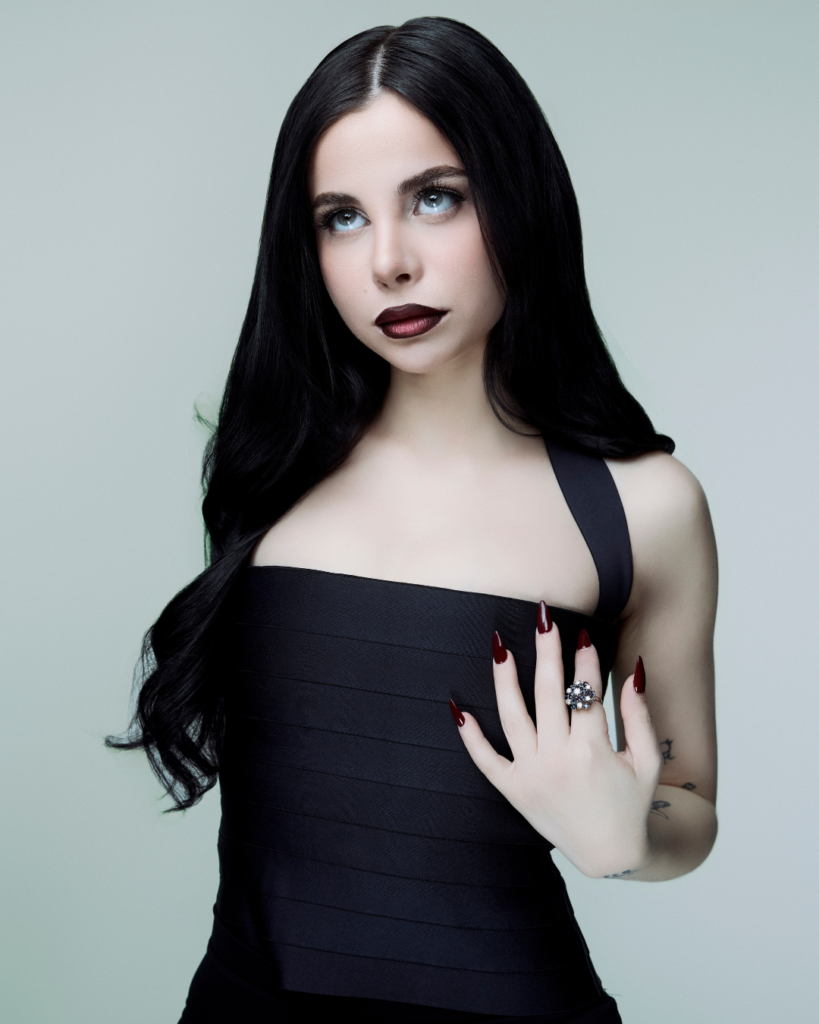
“I was never trying to make dark pop,” Ellise says in an exclusive interview with LOOP. “I was just writing my feelings and putting them to melodies that felt how I felt on the inside. I grew up very insecure and went through a lot of trauma at a young age. That gave me this sort of sad, dreary perspective when writing music. The rawness and realness of dark pop is what led me to make it-because it was directly in line with my own experiences.”
That authenticity is exactly what fans have clung to. In a cultural landscape of endless distraction, dark pop provides an emotional anchor. “I think people crave a little darkness,” she explains. “There are moments for the fun, summery bubblegum pop, and then there are moments for something a bit more somber. The world is a crazy place with constant bad news on a loop. People are going through their own life problems. Sometimes they need a place to go for those emotions- and I believe that is what I make music for.”
Ellise’s ascent wasn’t the product of a marketing blueprint or industry playbook. Instead, she emerged organically as one of the genre’s most essential voices, her songs blurring the line between diary entries and late-night confessions. 911 wasn’t just a hit, it was a cultural timestamp, embodying the collective isolation and rawness of 2020. Now, nearly five years later, she’s stepping back into a world that feels eerily familiar in its unease. With post-election tension and global instability shaping headlines, listeners once again find solace in darker sounds.
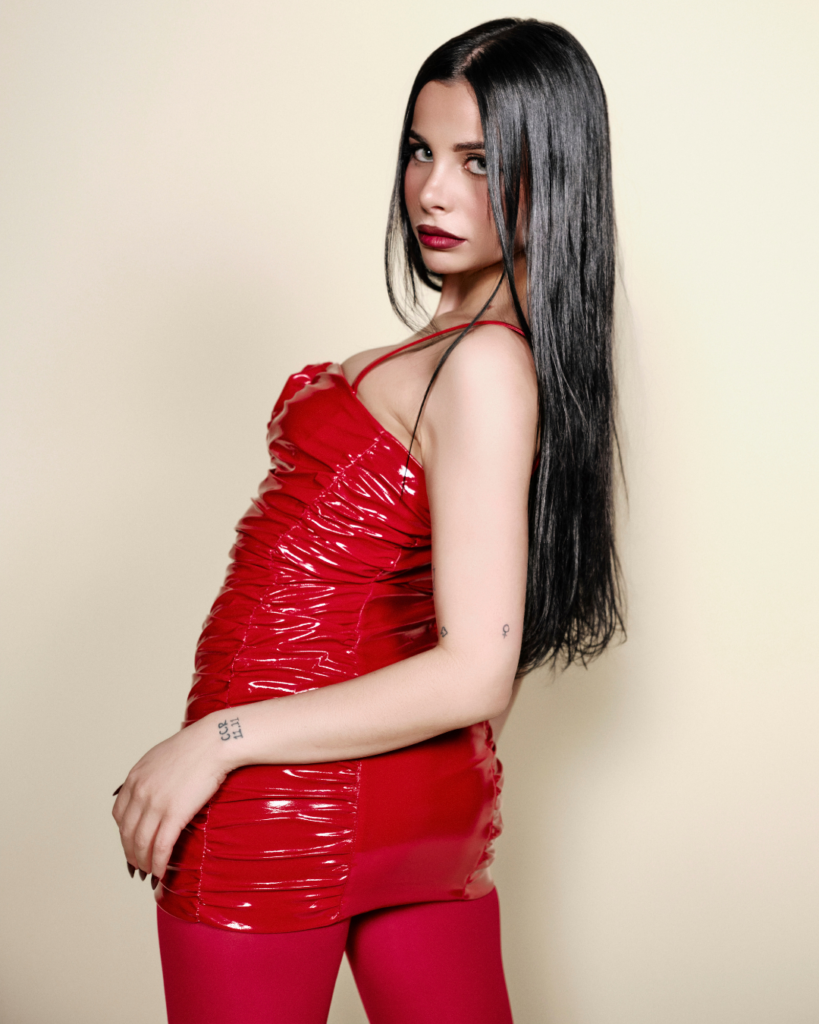
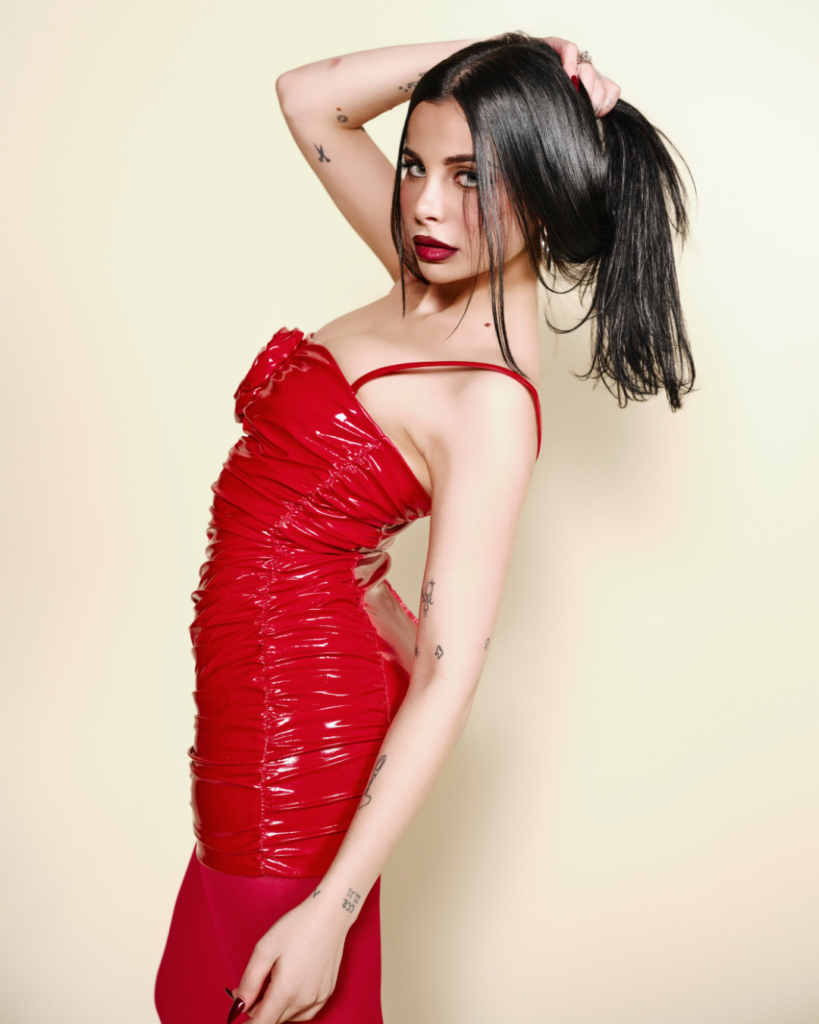
“Listening to taboo subjects in a non-villifying way can be validating for people,” she says. “The topics in this style of music tend to cater to the less appealing emotions- jealousy, obsession, toxicity, even abuse. But hearing those things explored makes people feel less alone. I personally listen to sad, dark, even angry music when I need an escape.”
Her fans clearly feel the same. During her PRETTY EVIL tour, the singer’s first headlining run across 15 U.S. cities, Ellise discovered just how deeply her music resonates in real time. “My debut headliner was unforgettable,” she says. “I don’t actually think there are words to describe the feeling of being on stage and touring. Hearing so many people scream and cry to your lyrics, many derived out of pain, was so healing. The music brought rooms of people together, and I’ll never forget that or take it for granted. A lot of my fans have been through similar traumas as I have, so honestly, I believe the darkness we share brings us closer.”
I don’t actually think there are words to describe the feeling of being on stage and touring. Hearing so many people scream and cry to your lyrics, many derived out of pain, was so healing.
The tour also gave her a front-row seat to the genre’s emotional impact. “Being able to hear so many people’s stories definitely made me feel the genre’s emotional impact. The trials I went through to create my music are the same trials the people who find themselves in the music go through. That’s what sets dark pop apart, the context of the songs. People can relate some of their hardest moments back to this music.”
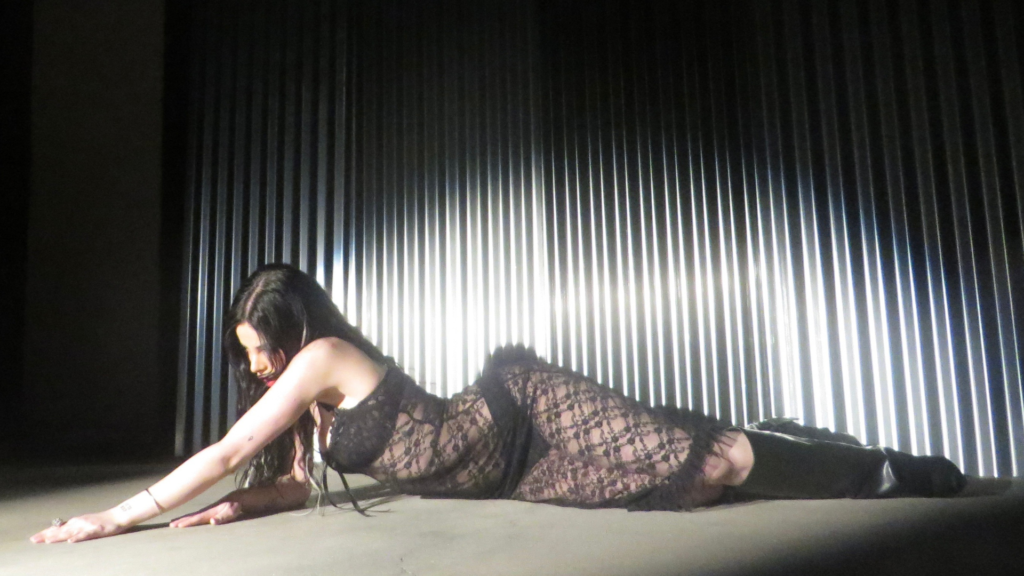
Ellise’s new single Die continues this tradition of intimacy cloaked in eerie aesthetics. A collaboration with longtime friend and creative peer Ella Boh, the track explores the universal fear of abandonment. “Ella and I were so excited to make this song together,” she shares. “We’ve been friends and worked together for years, so a collab was long overdue. Ella is a true creative force, and I’m such a fan of her music, so this song came pretty easily. We were just hanging out and decided to make a song, and a few hours later, Die was born. The inspiration behind the song lies in something that we have both experienced: A fear of being abandoned by the person you love most.”
The inspiration behind the song (Die) lies in something that we have both experienced: A fear of being abandoned by the person you love most.
The music video pushes this theme even further, leaning into cinematic horror tropes. “The video for Die is meant to feel like an indie horror film,” she teases. “Ella is my captor, and I’m stuck in her trap. I won’t reveal the ending, but it’s a haunting video for sure.”
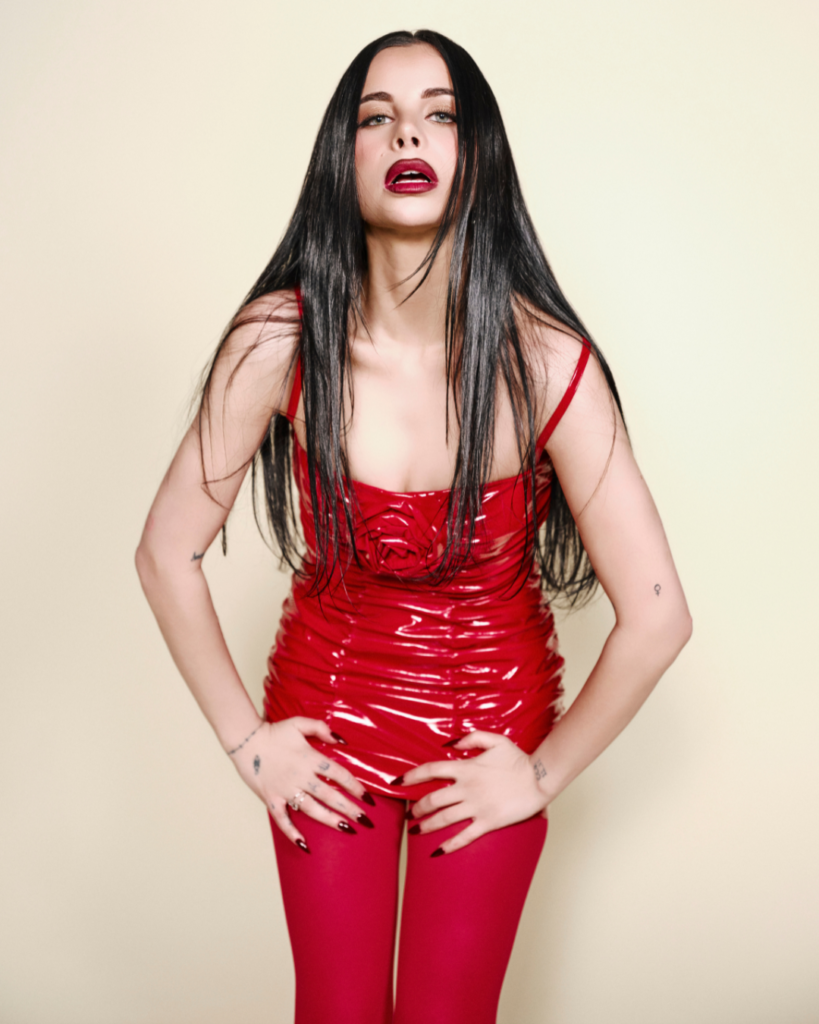
Dark pop, at its core, has always thrived on storytelling, and Ellise sees her work as part of a continuum. She references Gaga with reverence, acknowledging her as a pioneer who paved the way for artists like herself. “Gaga walked so dark pop could even exist,” she says. “She has been doing dark concepts forever. I used to watch all of her music videos as a young teenager and plan out how my videos were going to look based off of her. She has always been super inspiring to me.”
Other influences range from Melanie Martinez to Lana Del Rey, with nods to Paramore and The Neighbourhood. But Ellise is equally excited about her contemporaries. “Some rising dark pop artists who I love and am obsessed with: Ashley Sienna, Ella Boh, Ari Abdul, and Ella Red. I think girls are really dominating the genre, which I love.”
Still, she’s clear that her music is less about fitting into cultural movements and more about staying true to her own evolution. “My growth as an artist will always be a direct reflection of who I am at the moment,” she explains. “When I released 911, I was 20 years old, and so much has happened in my life since then. The themes I explore now come from a much more healed, older, and wiser perspective, which I think reflects both lyrically and sonically.”
Her storytelling is deeply personal, but she acknowledges its broader resonance. “I’m all about personal storytelling. The only stories I know how to tell are my own, and my gift is packaging them into material that others can see themselves in, too. All of my music has basically been a long-standing diary of my 20s.”
When asked if she’d write a dark pop anthem for this moment in time, her answer is cheeky but confident: “I’m already creating it… you’ll see soon.”
And that’s precisely what makes Ellise one of the most compelling artists of her generation. She doesn’t chase trends, she embodies them naturally. Her music feels both of-the-moment and timeless, tapping into emotions that remain constant even as the cultural tides shift. With Die, she’s not just adding to the current wave of dark pop, she’s helping shape its future.
Ellise reflects on where she fits into this broader moment. “As dark pop was coming up, I never really considered that a genre was being formed. I was just making music in a lane that felt natural to me and felt like me. As it began blowing up during the TikTok era, I realized something bigger had formed: A whole ecosystem of new music, new artists, and a new aesthetic that hadn’t been popular before. But I think the genre is in good hands. Genres are becoming less and less rigid, and people are creating more of their own mini lanes within larger genre spaces, which is really cool to see.”
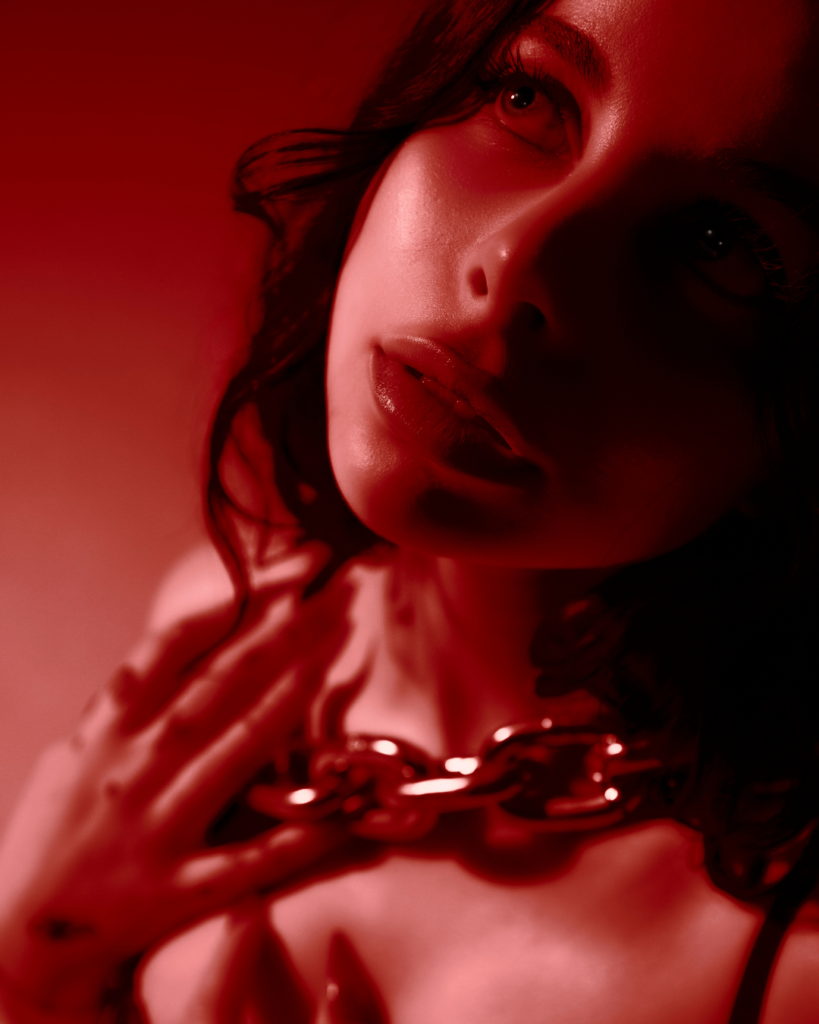
In other words, Ellise doesn’t just ride the wave, she’s one of the architects building the world where dark pop can thrive. With Gaga and Carpenter pulling the genre back into mainstream headlines, fans old and new are rediscovering a space where vulnerability, taboo, and theatricality collide. And just as in 2020, Ellise is right in the middle of it, ready to soundtrack the next chapter of a culture craving catharsis in the dark.
As the lights dim on another chaotic year, it feels only fitting that an artist who gave voice to our shadows half a decade ago is stepping back into the frame. Dark pop isn’t just having a moment, it’s having a revival. And Ellise, with her fearless storytelling and hauntingly beautiful sound, is once again its beating heart.
